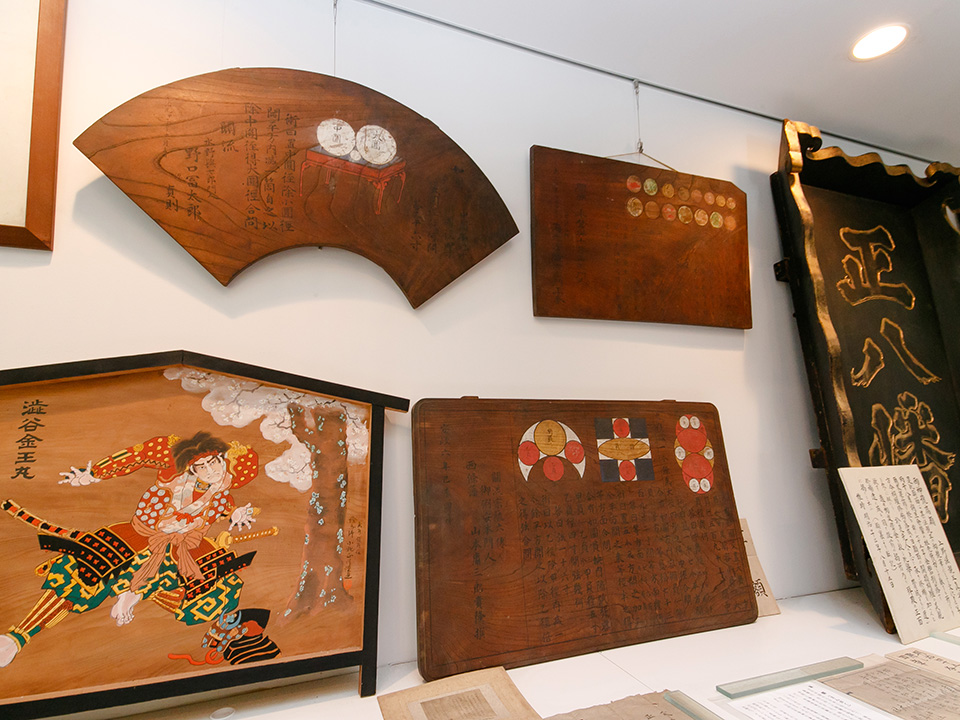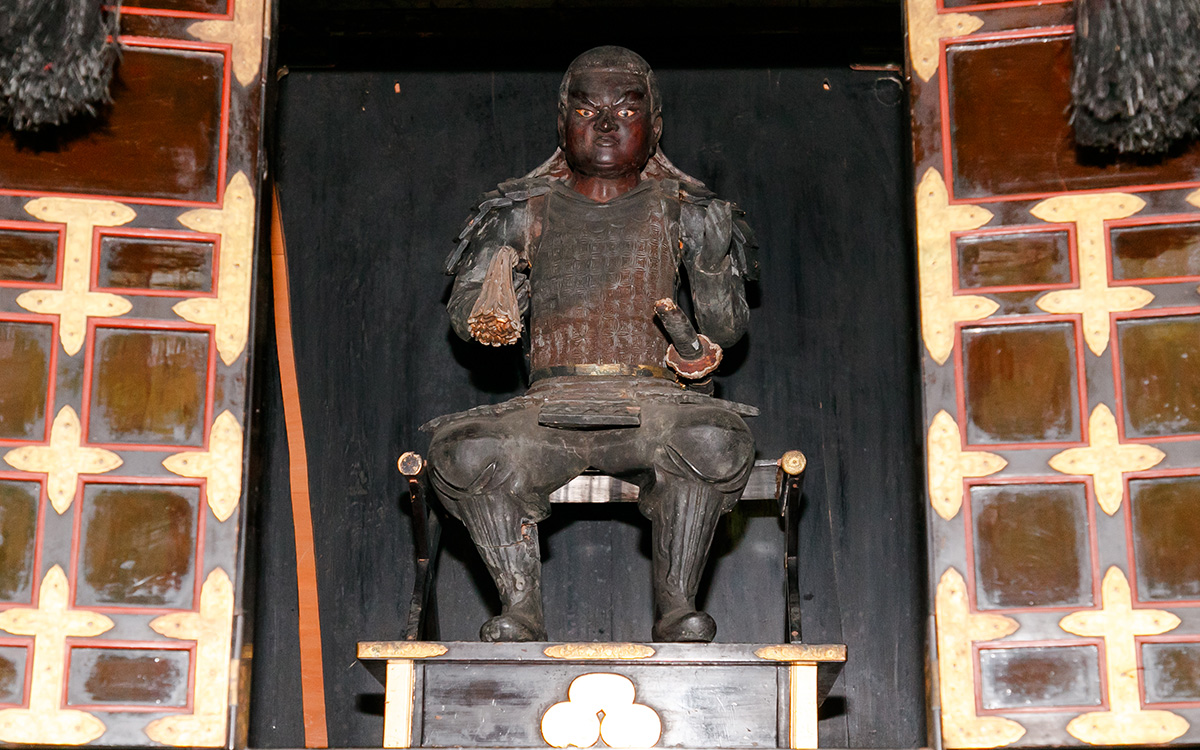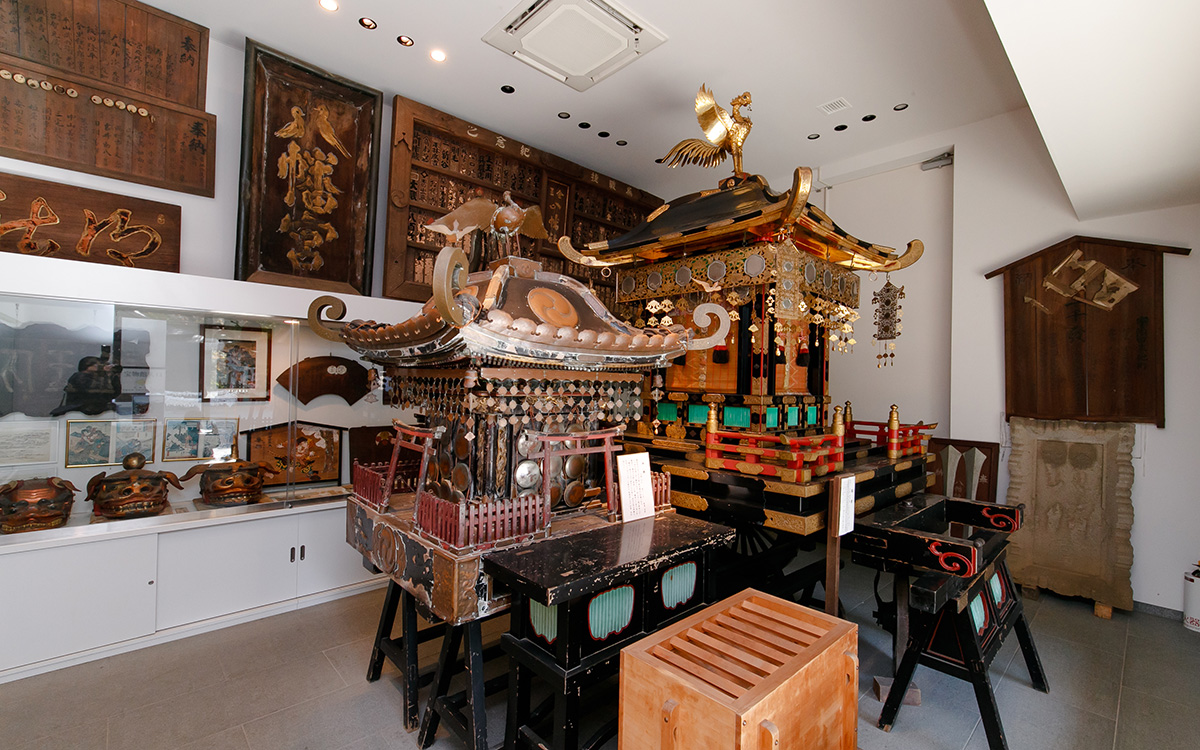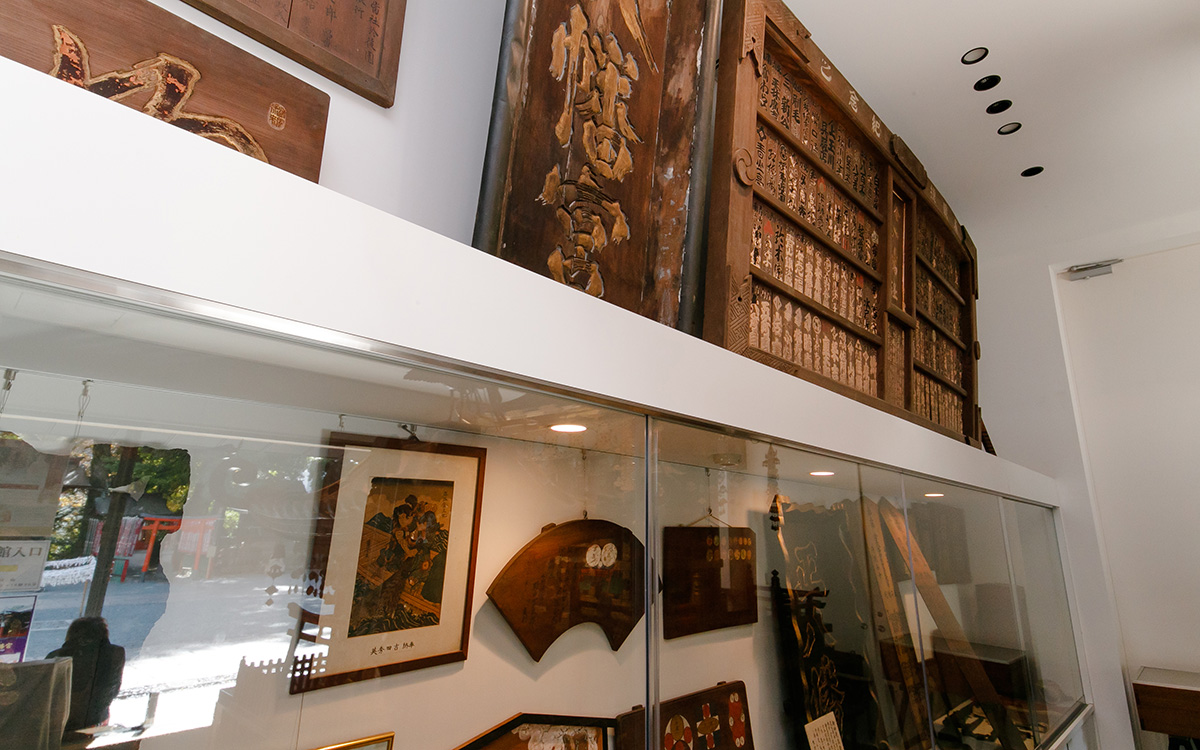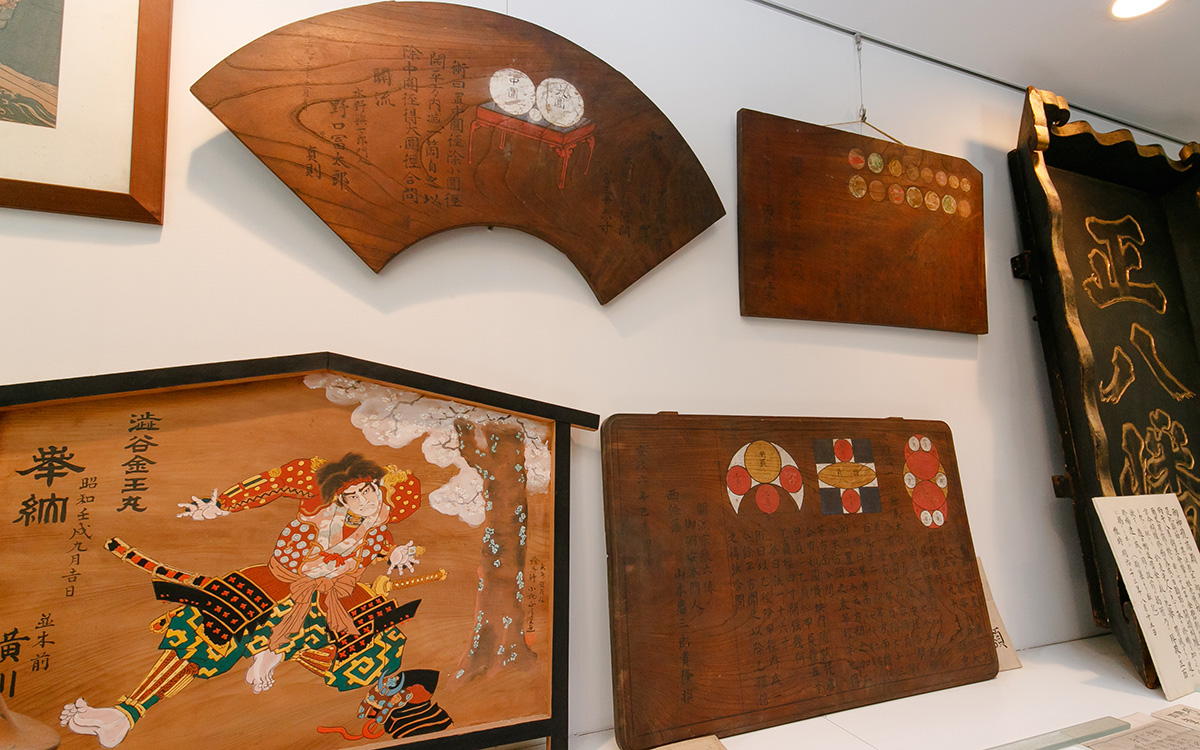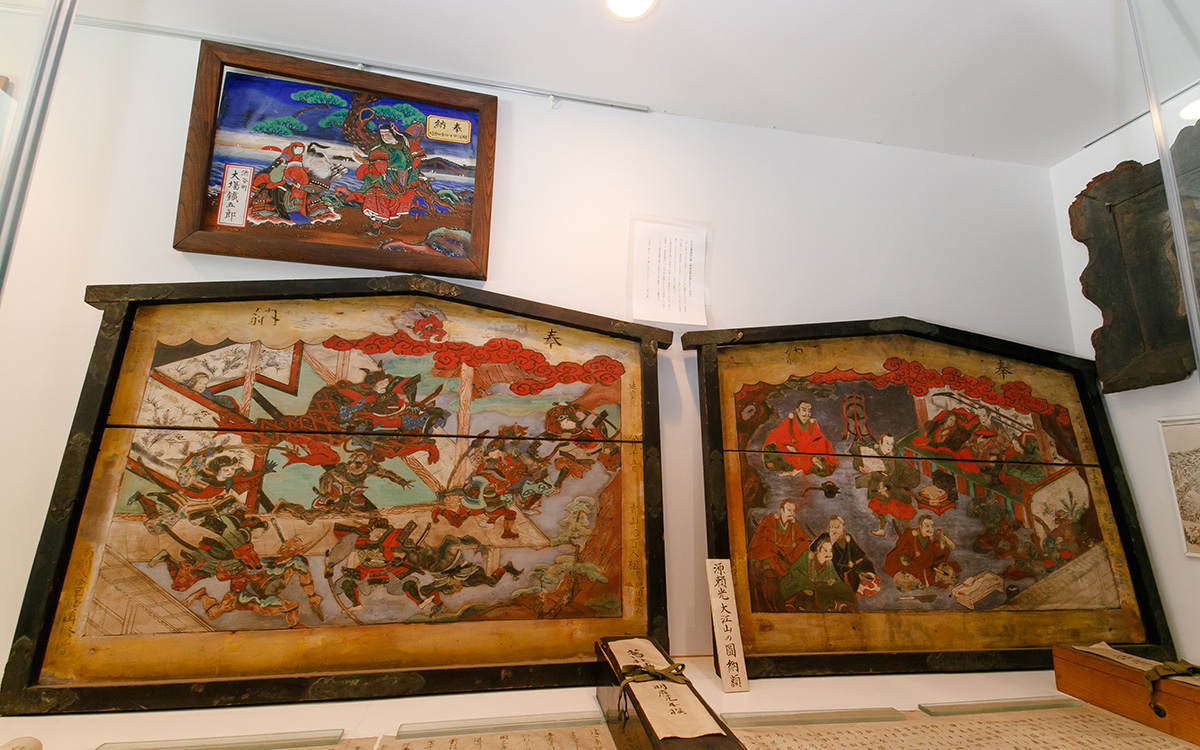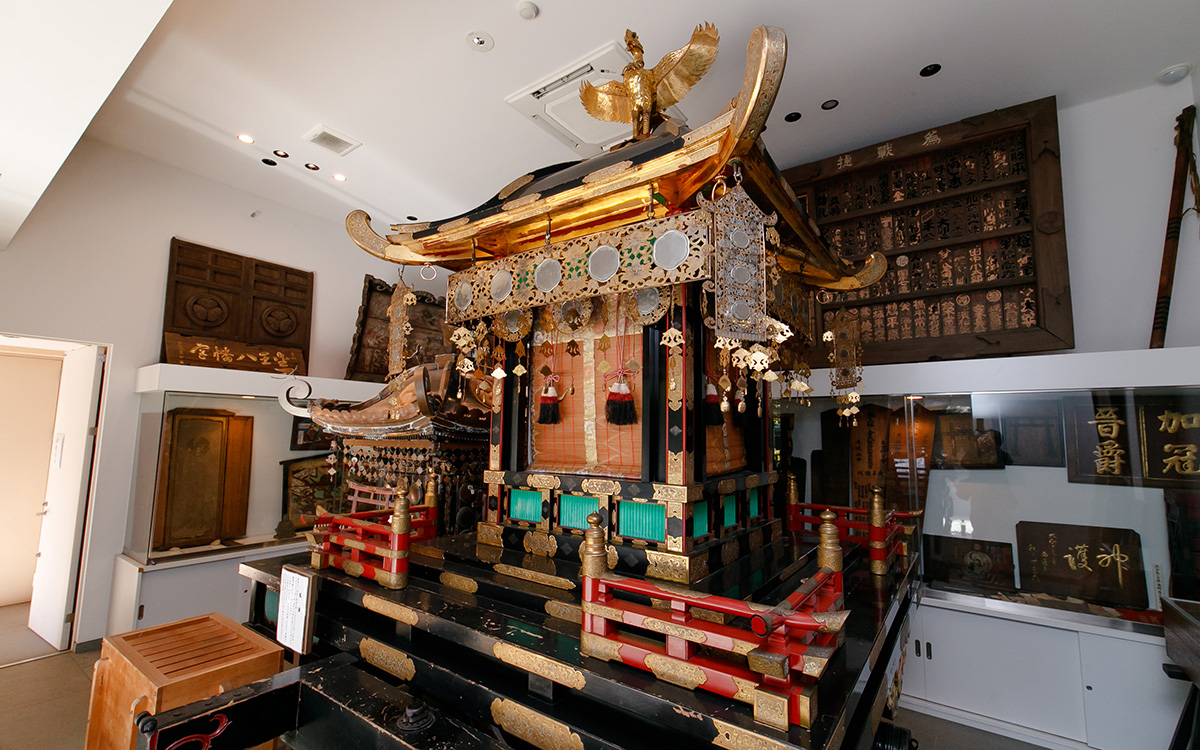Treasures
History of Konnoh Hachimangu Shrine
By Shigeyoshi Gorozaemon Muraoka, dated as the first month of the year 9 in the Meioh era, as well as in the year of kanoesaru (one of 60 sexagenary cycle year) (February, 1500 AD)
-
Konnohmaru
Inside Konnohmaru Mikage-do, located in the precinct of this shrine, there is a wooden statue of Konnohmaru carved by himself that he gave to his mother as a bequest when he went to war at the age of 17. Descendants of the Shibuya clan still live throughout Japan. An elder statesman in the Meiji era, Marshal-Admiral Heihachiro Togo was a descendant of the clan. The wooden statue of Konnohmaru is specially exhibited at the Konnohmaru Festival held on the last Saturday of March, when Mikage-do is open to the public. -
Chronicle of Shibuya Hachiman Daibosatu
Old Chronicles dedicated by the subordinate Aoyama family, the year 2 in the Kansei era (1788) -
Treasure Sword of Amakuni
A sword dedicated by Minamoto-no-Yoritomo (the inaugural Shogun of the Kamakura shogunate government) -
Sword of Shishimaru
Owned by Kawasaki-Tosa-no-Kami-Motoie -
Long-Handled Sword (Japanese halberd) of Dokuja (viper)
Owned by Shibuya-Konnohmaru-Tsunemitsu -
Getsurinnki
A copy of the original shintai or an object of worship -
Omikoshi (a portable shrine carried in a festival)
One of the seven portable shrines of Kamakura-Hachimangu, and the oldest portable shrine in the Metropolitan Tokyo area -
A Pair of Shishi (Lion) Masks (for a lion dance)
Made by Hidari-Jingoro, a legendary carving craftsman in the beginning of the Edo era. -
Rokusonnoh’s Kohgai (a hair styling accessory)
Owned by Rokusonnoh (Minamoto-no-Tsunemoto), dedicated by Minamoto-no-Yoshiie -
Framed Writing of Spiritual Title
Authentic writing by a renounced imperial prince Uenomiya -
Wooden Plaque Depicting the Legend of Spiking Ogre in Ooeyama
Designated as a tangible folkloric cultural property by Shibuya Ward of Tokyo -
Sangaku (a dedicated wooden plaque describing
Designated as a tangible folkloric cultural property by Shibuya Ward of Tok
mathematical problems and/or solutions
by a mathematician/math enthusiast in the Edo era)